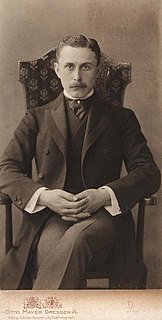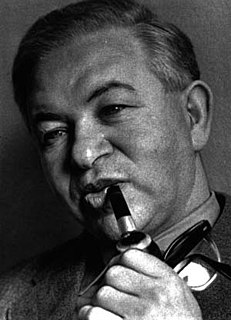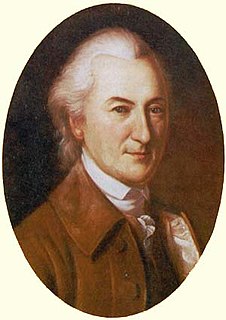A Quote by Adolf Loos
Architecture arouses sentiments in man. The architect's task therefore, is to make those sentiments more precise.
Quote Topics
Related Quotes
The task of the modern educator is not to cut down jungles but to irrigate deserts. The right defence against false sentiments is to inculcate just sentiments. By starving the sensibility of our pupils we only make them easier prey to the propagandist when he comes. For famished nature will be avenged and a hard heart is no infallible protection against a soft head.
I agree with you, Mr. Chairman, that the working men are the basis of all governments, for the plain reason that they are the more numerous, and as you added that those were the sentiments of the gentlemen present, representing not only the working class, but citizens of other callings than those of the mechanic, I am happy to concur with you in these sentiments, not only of the native born citizens, but also of the Germans and foreigners from other countries.
How could politics be a science, if laws and forms of government had not a uniform influence upon society? Where would be the foundation of morals, if particular characters had no certain or determinate power to produce particular sentiments, and if these sentiments had no constant operation on actions?
Some of the comments that have been uttered about Islam do not reflect the sentiments of my government or the sentiments of most Americans. Islam, as practiced by the vast majority of people, is a peaceful religion, a religion that respects others. Ours is a country based upon tolerance and we welcome people of all faiths in America.
Viewing the man from the genuine abolitionist ground, Mr. Lincoln seemed cold, tardy, weak and unequal to the task. But, viewing him from the sentiments of his people, which as a statesman he was bound to respect, then his actions were swift, bold, radical and decisive. Taking the man in the whole, balancing the tremendous magnitude of the situation, and the necessary means to ends, Infinite Wisdom has rarely sent a man into the world more perfectly suited to his mission than Abraham Lincoln.
At a certain point in history monuments became associated with kitsch, (it had never previously been so) and one might well ask why this unforeseen aesthetic and ethnic debasement of their values came about, or why monuments have not adapted to the times. Perhaps, instead of evoking authentic religious, patriotic or mystical sentiments, they evoke only the customary ersatz for these sentiments and have suffered the fate of becoming sentimental.







































